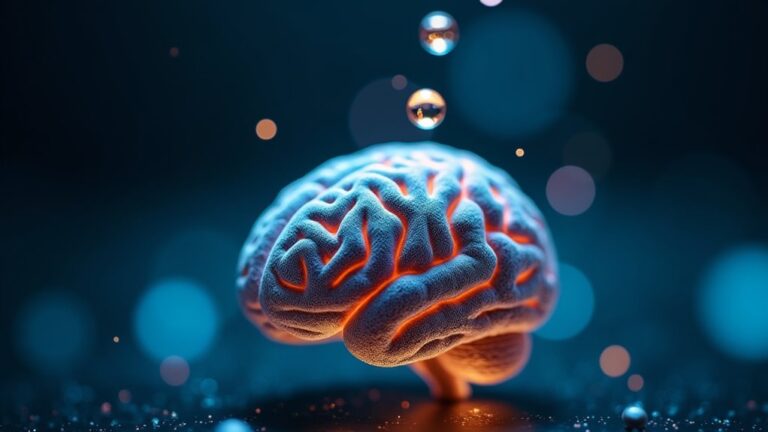The absence of a father leaves deep emotional scars that shape a child’s life in ways they could not fully comprehend until adulthood. Kids without paternal support often struggle with feelings of abandonment, wrestling with self-doubt and loneliness that follow them into relationships and future choices. The missing guidance disrupts their sense of security, leaving gaps in confidence and emotional fortitude.
Understanding the Role of Father Love in Child Development
How does a father’s presence shape a child’s growth? A father’s role goes beyond providing—it deeply influences a child’s psychological development. Fathers who are present and engaged help children feel secure, boosting their confidence and emotional stability.
Studies show kids with involved fathers perform better academically, likely because consistent communication and support foster focus and discipline. Whenever fathers are absent, children often struggle with loneliness, anxiety, or behavioral issues, missing the structure and reassurance a father’s love provides.
Fathers also model healthy relationships, teaching kids how to trust and connect with others. Their guidance helps children navigate challenges, reducing risks like delinquency or poor school performance. A father’s steady presence, rooted in commitment and care, lays the foundation for a child’s long-term wellness.
The Growing Epidemic of Father Absence in Modern Society
Why has father absence become so widespread, and what does it mean for families today? The rise in father absence stems from shifting family structures, higher divorce rates, and socioeconomic pressures. Over 18 million U.S. children grow up without their biological fathers, a trend that has doubled since 1968. This epidemic impacts families across racial and economic lines, with long-term psychological and emotional consequences looming for children.
Changing norms: Unmarried parents, particularly solo mothers, now represent a majority of father-absent homes.
Economic strain: Lower education and income levels reduce paternal involvement.
Divorce rates: Separation remains a leading cause of father absence.
Cultural disparities: Black children face higher rates (25%) compared to white children (17%).
Societal cost: Public health impacts exceed $99.8 billion annually.
The ripple effects of this absence extend beyond individual families, reshaping communities.
Emotional and Psychological Effects on Children Raised Without Fathers
While growing up without a father can leave deep emotional scars, the psychological toll on children often goes unnoticed until later in life. Children raised without fathers frequently exhibit depressive symptoms, heightened emotional distress, and struggles with emotional development.
Many experience feelings of abandonment, leading to anxiety and low self-esteem. Daughters, in particular, can face challenges forming healthy relationships, often grappling with trust and intimacy issues. Boys could display aggression or delinquency as a coping mechanism.
The lack of a paternal figure can disrupt a child’s sense of identity and security, leaving lasting emotional wounds. These psychological effects might surface as behavioral problems or difficulty regulating emotions, underscoring the profound impact of father absence on mental health.
Academic and Behavioral Challenges Linked With Father Absence
The classroom can feel like an uphill battle for kids growing up without a father. Father absence contributes to a higher risk of academic struggles, including lower grades and difficulty focusing. These children often face challenges in school performance, from weaker literacy skills to trouble with problem-solving. Behavioral issues, such as impulsivity or defiance, might also surface, making learning harder.
- Lower achievement: Kids without fathers often score lower on tests and have higher dropout rates.
- Delayed development: Language and executive functioning skills could lag behind peers.
- Disruptive behavior: Acting out or attention-seeking can become coping mechanisms.
- Delinquent behavior: Teens are more likely to experiment with drugs or petty crime.
- Social struggles: Building trust with teachers and peers feels tougher without paternal support.
The ripple effects extend beyond grades, shaping long-term opportunities and self-confidence.
The Father’s Influence on Relationship Patterns and Attachment
How does growing up without a father shape the way someone loves or connects with others? An absent father often leaves deep emotional gaps that affect relationships later in life. Without a father figure, children can struggle with trust, intimacy, and secure attachments.
Daughters, in particular, might view men as untrustworthy or emotionally distant, shaping how they engage in romantic bonds. Fathers make a difference through modeling healthy communication and conflict resolution—skills kids miss when dad isn’t present. This lack can lead to difficulties in forming stable connections, as kids may feel uncertain how to express needs or resolve disagreements.
Over time, the absence influences how they approach love, often leaving them with insecurities or unrealistic expectations in partnerships.
Long-Term Mental Health Consequences of an Absence of Paternal Guidance
Father absence doesn’t just shape relationships—it leaves fingerprints on mental health well beyond childhood. Longitudinal studies reveal that the impact of father absence extends into adulthood, with higher risks of depression, anxiety, and emotional instability.
Absent fathers often leave a void in emotional support, making it harder for children to develop healthy coping mechanisms.
- Depression & Anxiety: Children without paternal guidance face a 2-3x higher likelihood of mood disorders.
- Attachment Issues: Struggles with trust and emotional security persist into adulthood.
- Risky Behaviors: Increased tendencies toward delinquency or substance use as coping mechanisms.
- Self-Esteem Gaps: Lingering feelings of inadequacy or unworthiness.
- Social Withdrawal: Difficulty forming stable relationships due to unresolved emotional gaps.
The mental health toll isn’t fleeting—it’s a shadow that lingers, shaping lives in ways research is still uncovering.
The Ripple Effect: How Father Absence Impacts Mothers and Families
Father absence creates a ripple effect that extends beyond children, deeply affecting mothers and family stability. Mothers often face heightened stress and depression while juggling parenting alone, alongside financial struggles that strain household resources.
The absence of a father figure also disrupts family dynamics, weakening bonds and reducing the support system needed for healthy development.
Maternal Stress and Depression
Maternal stress and depression often intensify in households where a father is absent, creating a ripple effect that touches every family member. The strain of raising children alone, caused by an absent partner, can leave mothers feeling overburdened and isolated.
Women in these situations might struggle to let go of unspoken pressures, from balancing childcare to handling daily responsibilities alone. Studies indicate that mothers in single-parent homes report higher stress levels, partly because they grow up without a co-parent sharing the burden. This can lead to negative effects on mothers and children, including emotional exhaustion and strained relationships.
- Higher depression rates due to lack of emotional support.
- Antenatal stress linked to pregnancy complications.
- Behavioral challenges in children of depressed mothers.
- Increased social isolation from carrying sole responsibility.
- Long-term mental fatigue from unrelieved caregiving demands.
Financial Strain and Instability
Alongside emotional challenges, the absence of a father often brings serious money problems for families. Children in father-absent homes are nearly four times more likely to live in poverty, with higher risks of food insecurity and material hardship.
Single mothers, who shoulder the financial burden alone, face greater struggles—39% live in poverty compared to just 8.8% of two-parent households. Without paternal support, many rely on public assistance, straining public health and social systems. The U.S. government spends billions annually tackling the fallout, from welfare programs to lost tax revenue.
Financial instability creates stress, limits opportunities, and perpetuates cycles of disadvantage. For families coping with father absence, economic hardship isn’t just a temporary setback—it’s a long-term challenge with deep-reaching consequences.
Family Dynamics Disruption
As a father departs, the entire family structure shifts, leaving mothers to navigate challenges that stretch far beyond sole parenting. The family process becomes strained, with mothers often bearing the weight of emotional and logistical burdens alone.
This disruption can lead to increased stress, affecting their physical health and ability to stay fully involved in their child(ren)s’ lives. Among children, the absence of a father figure might result in behavioral issues, weakened bonds, and a sense of instability.
- Emotional toll: Mothers face higher rates of anxiety and depression, impacting their parenting.
- Financial pressure: Single mothers often struggle with housing and basic needs, adding stress.
- Behavioral shifts: Children might act out or withdraw due to unresolved emotions.
- Weakened bonds: Parent-child relationships can suffer without a balanced family dynamic.
- Reduced monitoring: Less supervision might lead to risky behaviors among children.
The ripple effect touches every aspect of family life.
Societal Costs and Broader Consequences of Fatherless Households
Fatherless households create ripple effects that extend far beyond individual families, burdening society with significant financial and social costs. National Fatherhood initiatives highlight how higher rates of poverty, crime, and poor Adolescent Health stem from father absence, leading to Long-term Consequences for communities. The U.S. government spends billions annually on programs tackling these issues, from welfare to juvenile justice systems. Children raised without fathers often struggle academically and emotionally, increasing their reliance on public assistance later in life.
| Impact Area | Consequence |
|---|---|
| Poverty | 39% of single-mother families live below the poverty line |
| Education | Higher dropout rates and lower academic achievement |
| Mental Health | Increased risk of depression and substance abuse |
| Public Spending | $99.8 billion annual cost to taxpayers |
These challenges underscore the need for systemic solutions.
Breaking the Cycle: Strategies for Overcoming Father Absence Trauma
Children who grow up without a father often carry emotional wounds into adulthood, but healing is possible with the right tools and support. Overcoming trauma from father absence involves rebuilding love and connection while embracing one’s true self.
Strategies include:
- Professional counseling to unpack unresolved emotions and develop healthy coping mechanisms.
- Building a strong support network of mentors or role models to fill gaps in children’s lives.
- Practicing self-care like journaling, meditation, or exercise to foster resilience and emotional balance.
- Exploring passions to cultivate independence and self-worth, free from past shadows.
- Modeling responsible parenthood by nurturing healthy relationships with one’s own children, breaking generational cycles.
With intentional effort, individuals can redefine their narrative and create stability, ensuring future generations thrive.
Strengthening Father-Child Bonds for a Healthier Future Generation
| Father Involvement | Child Benefits |
|---|---|
| Playtime | Boosts social skills |
| Reading together | Amplifies language development |
| Attending school events | Improves academic performance |
| Open communication | Fortifies emotional stability |
Small, daily efforts create lasting impacts, ensuring healthier generations.
Conclusion
Research suggests father absence leaves deep emotional scars, but healing is possible. While studies show kids without dads often struggle with trust and self-worth, experts argue that strong role models and therapy can rebuild confidence. The truth? A father’s love matters, but resilience can rewrite the story. The real question isn’t just about loss—it’s about how love, in any form, can fill the gaps.




